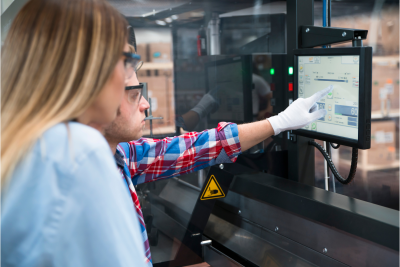The European Parliament has today improved the Artificial Intelligence Act, but opened-up a loophole which will leave workers’ safety and fundamental rights at risk.
The Artificial Intelligence Act proposed by the European Commission only requires manufacturers to rank their own technology between low and high risk before putting it on the market and did not include any rules on the use of AI in the workplace.
The report adopted by Parliament’s committees on Legal Affairs and Internal Market and Consumer Protection made important improvements, including:
- A duty to consult with workers and their representatives before introducing AI to the workplace
- A duty to carry out an assessment of the impact on fundamental rights of the introduction of AI
Workers are more likely to report positive impacts of AI if there has been a process of consultation through their trade unions, a recent report by the OECD found.
However, under Article 6 of the report, the use of AI in the workplace will only be restricted if it poses a “significant risk”. As this is difficult to prove, the safety and rights of workers will remain open to abuse.*
The ETUC is also concerned that the use of AI affecting people’s fundamental rights will be regulated through the technocratic standardisation process, which is dominated by private business interests, rather than through legislation drawn up in the interests of all citizens. The report calls for a balanced representation of interests, but does not contain the measures needed to ensure this will be a reality.
European Trade Union Confederation Confederal Isabelle Schömann said:
“The warnings from Google’s former head of artificial intelligence about its potential misuse should be a wake-up call to us all about the need for strong regulation of its use, including at work.
“Artificial intelligence has already been the cause of accidents in the workplace and research shows that its use in workplaces can lead to increased intensity and stress.
“The power of AI can be harnessed to our benefit if it is introduced in the right way, in consultation with workers and their trade unions through collective bargaining.
“It's also important that rules about the use of AI are set through democratic debate and scrutiny and not the behind-closed-doors standardisation process which is dominated by corporate interests.
“MEPs have introduced important safeguards today but unfortunately left open a loophole which could leave workers’ safety and rights at risk.”
Notes
*The restriction that only AI applications from Annex III that pose "significant" risk of harm to the health, safety or fundamental rights of natural persons are classified as high-risk constitutes a major loophole in the agreed text. This would include, in particular, applications in the workplace. In practice, this is virtually impossible to achieve ex-ante. Providers will generally state that their applications may pose risks to workers but classify them as non-significant. The notification procedure provided for in Article 6 (3) is not able to prevent this and only leads to forum shopping of the weakest supervisory regime.

